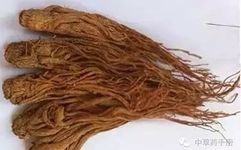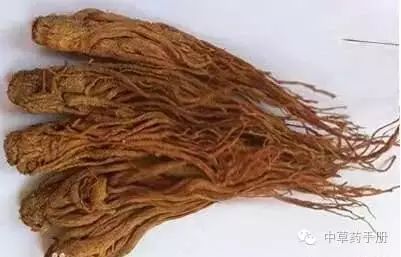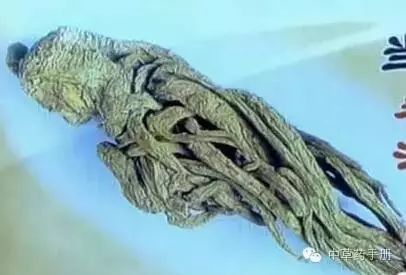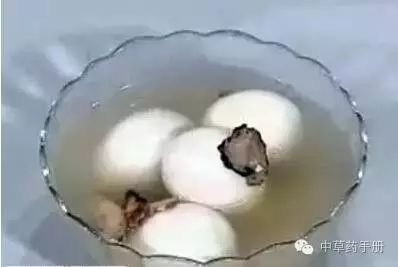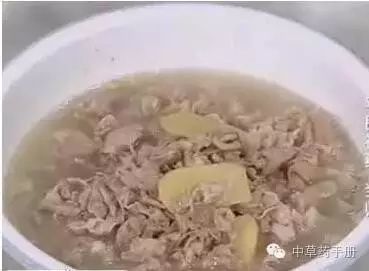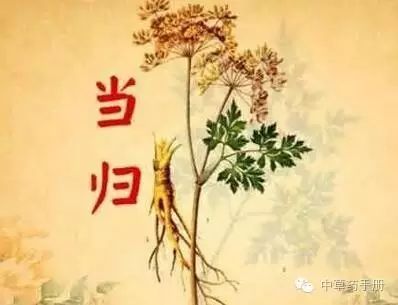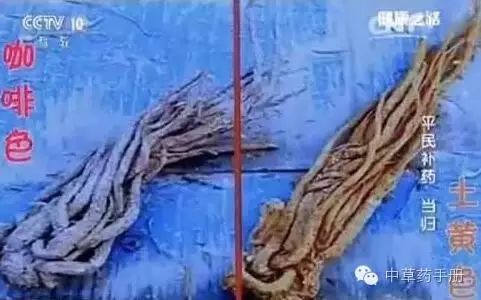Introduction to Angelica Sinensis (Dang Gui)Angelica Sinensis, also known as Dang Gui, Gan Gui, Qin Na, Xi Dang Gui, Min Dang Gui, Jin Dang Gui, Dang Gui Shen, Han Gui Wei, Dang Gui Qu, and Tu Dang Gui, is primarily produced in the southeastern part of Gansu Province, with Min County being the largest producer of high-quality roots. It is one of the most commonly used traditional Chinese medicines (TCM), known for its ability to invigorate and replenish blood, earning it the title of “the sacred herb for gynecology.” The head of Dang Gui is used to stop bleeding, the body nourishes and replenishes blood, and the tail promotes blood circulation.
The Efficacy and Functions of Angelica Sinensis Efficacy and Functions of Angelica SinensisProperties and EffectsAngelica Sinensis has a sweet, pungent, and slightly bitter taste, and is warm in nature; it enters the liver, heart, and spleen meridians. It has the effects of warming and unblocking the meridians, nourishing and invigorating blood, regulating menstruation, alleviating pain, and moistening the intestines to relieve constipation. IndicationsIt is indicated for symptoms of both Qi and blood deficiency, blood stasis; liver Qi stagnation, dizziness, headaches, palpitations, numbness of limbs, irregular menstruation, amenorrhea, dysmenorrhea, dryness and constipation, uterine bleeding, masses, cold abdominal pain, atrophy, rheumatic pain, post-dysentery heaviness, trauma swelling and pain, and abscesses. It can also help maintain pregnancy and is a good remedy for postpartum recovery. In modern applications, Angelica Sinensis is used to treat coronary heart disease, thromboangiitis obliterans, acute ischemic stroke, muscle and joint pain, neuralgia, and angina, achieving certain therapeutic effects. Angelica Sinensis for DysmenorrheaAngelica Sinensis is suitable for treating dysmenorrhea in women, as the cause of dysmenorrhea is often due to blood stasis and clots causing obstruction. When there is obstruction, there is pain, and Angelica Sinensis has a strong effect in invigorating blood and resolving stasis. Modern studies have found that Angelica Sinensis can inhibit platelet aggregation and relieve uterine smooth muscle spasms. Angelica Sinensis for BeautyUsing 2-3 grams of Angelica Sinensis ground into powder, steeped in hot water or boiled, can promote beauty and skin health, and can be taken long-term.
(Traditional Chinese Medicine – Angelica Sinensis) Methods of Consuming Angelica Sinensis1. Angelica Sinensis Blood Nourishing PorridgeIngredients: 8 grams of Angelica Sinensis, 50 grams of Astragalus (Huang Qi), 100 grams of japonica rice. Preparation: Boil Angelica Sinensis and Astragalus in water for 30 minutes, strain, and add japonica rice to cook porridge. 2. Angelica Sinensis Lamb StewIngredients: Lamb, white radish, ginger slices, red dates, Angelica Sinensis. Seasonings: Sichuan pepper, cinnamon powder, cooking wine, salt, chicken powder. Steps: 1. Blanch lamb with white radish skin to remove impurities and odors, slice ginger, and set aside; 2. Heat oil in a pan, sauté ginger slices and Sichuan pepper, add lamb and stir-fry, then add water, red dates, and Angelica Sinensis, simmer on medium heat for 1 hour; 3. Finally, add cinnamon powder, cooking wine, salt, and chicken powder to taste, then serve. 3. Angelica Sinensis Ginger SoupPreparation: 15 grams of Angelica Sinensis, 15 grams of ginger, a little brown sugar, boiled in water for consumption. Effect: Dispels cold and alleviates pain, effective for dysmenorrhea. 4. Angelica Sinensis Steamed EggIngredients: Eggs, about 10 slices of Angelica Sinensis. Preparation: 1. Soak Angelica Sinensis in water for 30 minutes, then steam for 30 minutes; 2. Boil eggs for 3 minutes, then let sit for 2 minutes, peel; 3. Place eggs in Angelica Sinensis water and boil for 5 minutes, then remove, poke small holes in the eggs with a toothpick, soak in Angelica Sinensis water, and add brown sugar to taste.
Angelica Sinensis Steamed Egg 5. Angelica Sinensis Blood Nourishing SoupIngredients: 30 grams of Astragalus, 6 grams of Angelica Sinensis; Effect: Nourishes blood. 6. Angelica Sinensis Ginger Lamb SoupIngredients: Thinly sliced lamb. Preparation: 1. Blanch lamb slices in boiling water to remove odor; 2. In a pot, add a little water and stir-fry the lamb; 3. Add ginger slices, and when the water is almost evaporated, add hot water and Angelica Sinensis (not too much, similar to the amount of ginger), simmer for 10 minutes; 4. Finally, season with salt, sugar, peppercorns, a little MSG, and chicken powder before serving.
Angelica Sinensis Ginger Lamb Soup TCM Formulations1. Dang Gui Si Ni Tang (Angelica Sinensis Decoction for Cold Extremities) – Zhang ZhongjingPreparation: 12 grams of Angelica Sinensis, 9 grams of Cinnamon Twig (Gui Zhi), 9 grams of White Peony (Bai Shao), 3 grams of Asarum (Xi Xin), 6 grams of Tong Cao, 8 dates, 6 grams of honey-fried licorice (Zhi Gan Cao). Effect: Warms the meridians and disperses cold, suitable for women who feel cold in their hands and feet during winter. 2. Si Wu Tang (Four Substance Decoction)Ingredients: 10 grams of Angelica Sinensis (invigorates blood and regulates menstruation), 12 grams of Rehmannia (Shu Di Huang) (invigorates and replenishes blood), 12 grams of White Peony (Bai Shao) (nourishes Yin blood), 8 grams of Chuanxiong (Chuan Xiong) (invigorates blood and alleviates pain). Effect: Nourishes and invigorates blood, treats gynecological blood stasis disorders, and improves facial complexion in women. 3. Blood Invigorating and Beauty TeaIngredients: 5 grams each of Angelica Sinensis, Rose (Mei Hua), and He Huan Hua; Preparation: Steep in boiling water for 10 minutes. Effect: Soothes the liver, regulates Qi, and invigorates blood. Source: Health Road 20151012 Changing Constitution to Prevent Cancer (Part 2) 4. Spleen Strengthening and Kidney Nourishing SoupIngredients: One chicken, 20 grams each of Codonopsis (Dang Shen), Astragalus (Huang Qi), and Angelica Sinensis. Preparation: Stew in a clay pot for 1 hour. Effect: Nourishes blood and Qi, strengthens the spleen and kidneys. Source: Health Road 20151102 How Women Can Resist Aging – Part 2
(Traditional Chinese Medicine – Angelica Sinensis) Historical Records of Angelica Sinensis in TCM Classics1. In the “Commentary on the Treatise on Cold Damage”: The pulse is the residence of blood, and all blood belongs to the heart. Therefore, to open the pulse, one must first nourish the heart and blood. Zhang Zhongjing used Angelica Sinensis to assist heart blood for those with cold extremities and thin pulse. 2. The “Secret of Treatment” states: Angelica Sinensis has three uses: it is the primary medicine for the heart, harmonizes blood, and treats various diseases that worsen at night. It is used for internal and external treatment, and must be soaked in wine to dissolve hardness. For blood diseases, it must be used. For intolerable eye pain, soak Angelica Sinensis root in wine and decoct for consumption. It also states: When blood is stagnant and does not flow, it causes pain. The body of Angelica Sinensis is pungent and warm, dispersing it, allowing Qi and blood to return to their proper places. 3. Li Gao: The head of Angelica Sinensis stops bleeding and ascends; the body nourishes blood and guards the center; the tail breaks blood and descends; the whole herb invigorates blood without dispersing. 4. In the “Materia Medica of Decoctions”: Angelica Sinensis enters the hand Shaoyin (Heart) and foot Taiyin (Spleen) meridians, as the heart governs blood; it also enters the foot Jueyin (Liver) meridian, as the liver stores blood. The head can break blood, the body can nourish blood, and the tail can move blood. Users should not differentiate; it is better to use it whole. If used entirely, it can supplement blood like Ginseng and Astragalus; if used with Qian Niu Zi and Da Huang, it can break blood. Users should know the proper proportions. From Gui, Fu, and Zhu Yu, it is warming; from Da Huang and Mang Xiao, it is cooling. Only wine-steamed Angelica Sinensis can treat headaches, as all headaches belong to wood, thus it is governed by blood medicine. 5. In the “Han’s Medical Communication”: Angelica Sinensis governs blood-related diseases. The one from Sichuan is strong and can attack, while the one from Qin is soft and suitable for supplementation. For all uses, it should be prepared with wine, while phlegm should be soaked in ginger juice to guide blood back to its source, as should Shu Di Huang. For blood deficiency, use Ginseng and Shi Zhi as assistants; for blood heat, pair with Sheng Di Huang, Jiang Huang, and Chuan Qiong. For blood stasis, pair with Da Huang. For women who are overweight, blood transforms into phlegm; use ginger-soaked and diuretic herbs. In summary, blood medicine cannot do without Angelica Sinensis, thus the classic Si Wu Tang uses it as the monarch, Bai Shao as the minister, Shu Di Huang divided into raw and cooked as assistants, and Chuan Xiong as the envoy, which can be considered essential. 6. In the “Compendium of Materia Medica”: Angelica Sinensis treats headaches; take it boiled in wine for its floating and ascending properties. It treats heart pain; take it powdered and mixed with wine for its murky and half-sinking properties. For hematuria, take it boiled in wine for its sinking properties. There is a distinction between high and low. Wang Haizang said that Angelica Sinensis is a blood medicine; how can it treat cough and reverse qi in the chest? Since Angelica Sinensis has a pungent and dispersing taste, it is also a qi medicine in the blood. Moreover, cough and reverse qi have no attachment due to Yin deficiency, thus using blood medicine to nourish Yin will harmonize blood and lower qi. 7. In the “Essentials of Materia Medica”: For diseases that worsen at night, it is a blood disease, and it is advisable to use it. For diseases of deficiency and cold, where Yang has no attachment, it is advisable to use it. Warming malaria and cold heat are not on the skin or in the muscles, but wash in the skin. Observe that the skin is where the Ying Qi meets; prolonged warming malaria leads to Ying Qi deficiency, with cold and heat contending, sweating profusely. Using blood medicine to nourish Ying will harmonize Ying and Wei, and with Ying and Wei harmonized, how can warming malaria not be stopped? 8. In the “Corrected Materia Medica”: Angelica Sinensis has a sweet and heavy taste, thus it can specifically nourish blood; its qi is light and pungent, thus it can also move blood. It has both nourishing and moving properties, truly a qi medicine in the blood, also a sacred medicine in the blood. Generally, when paired with supplements, it nourishes; thus, it can nourish Ying and blood, supplement Qi, generate essence, calm the five organs, strengthen the body, and benefit the spirit. For any disease of physical deficiency, it is suitable. When paired with attacking herbs, it can move, thus it can relieve pain, promote bowel movements, and treat spasm, paralysis, dryness, and other symptoms. For those with Ying deficiency and unresolved exterior, pair with Chai Hu, Ge Gen, Ma Huang, Gui Zhi, etc., to disperse exterior heat; for those with unresolved exterior, pair with Da Huang to solidify the exterior. Its qi is pungent and moving, thus those desiring calm should avoid it; its nature is slippery and good at moving, thus those with loose stools should avoid it. For those with excess Yin fire, Angelica Sinensis can move blood, which is not advisable; for those with Yang deficiency, Angelica Sinensis can nourish blood, which is essential. If blood stagnates and causes dysentery, it is precisely what should be used; the key is in the words “move” and “slip”; if women have stagnant blood during menstruation, induce labor, or have postpartum pain, this should be used as the monarch. 9. In the “Justification of Materia Medica”: The body of Angelica Sinensis guards and supplements effectively; the tail promotes movement and disperses stasis. The head ascends, thus for bleeding and hematuria, it is appropriate to elevate and solidify. If there is vomiting blood or epistaxis due to qi and fire rising, assist with warming elevation; is it not like adding wings to a tiger? Thus, the two words “stop bleeding” should be applied according to symptoms, and one must not be confined to the word “stop” and mistakenly believe it has no other uses. Moreover, for all symptoms of blood loss, qi and fire agitation disturb the blood vessels, causing it to flow improperly, which is quite common. The qi and taste of Angelica Sinensis are both rich; when it moves, it is sufficient, but when it guards, it is insufficient. 10. In the “New Compilation of Materia Medica”: Angelica Sinensis has a sweet and pungent taste, is warm, can ascend and descend, is Yin among Yang, and is non-toxic. Although there are distinctions between upper and lower, its blood nourishing properties are unified. It enters the heart, spleen, and liver. However, its nature is very moving; when added to Qi tonics, it nourishes Qi; when added to blood tonics, it nourishes blood, with no fixed efficacy. 11. In the “Compendium of Materia Medica” (Li Shizhen): “Angelica Sinensis regulates blood, is a woman’s medicine, and has the meaning of longing for a husband, hence the name ‘Dang Gui.'” 12. In the “Thousand Gold’s Winged Prescriptions” (Sun Simiao): “Angelica Sinensis is a woman’s medicine for anti-aging, removing spots, and beautifying the skin.” Side Effects of Angelica Sinensis1. Excessive dosage, such as Angelica Sinensis tincture, may cause fatigue and drowsiness; these effects can disappear after stopping the medication, but it should not be taken in large amounts. 2. Allergic reactions; some injections of Angelica Sinensis may cause anaphylactic shock, requiring special attention. 3. Improper use; Angelica Sinensis is a sweet, warm, and moistening tonic, contraindicated in cases of heat-induced bleeding. Use with caution in cases of fullness and loose stools. 4. Do not consume the essential oil of Angelica Sinensis, as it contains small amounts of carcinogenic substances. 5. Patients with chronic diarrhea or abdominal distension should avoid Angelica Sinensis. 6. Pregnant women should avoid Angelica Sinensis. 7. Children should not use Angelica Sinensis. How to Select Angelica SinensisWhen selecting Angelica Sinensis, choose the brown variety, which is better. Angelica Sinensis contains essential oil, and when sliced, it appears brown; yellowish Angelica Sinensis is often sulfur-treated. High-quality Angelica Sinensis appears dark in color, has a strong medicinal aroma, and has a sweet aftertaste.
(How to Select Angelica Sinensis) Populations Unsuitable for Angelica Sinensis1. Individuals with heat in the palms (Five Hearts Heat) are not suitable for Angelica Sinensis. 2. Those with spleen deficiency and loose stools should not use Angelica Sinensis. The Origin of the Name ‘Dang Gui’According to legend, there was a newlywed couple. One day, the husband went to the mountains to gather herbs and did not return for three years. The wife missed her husband greatly and fell ill due to excessive longing. Later, feeling hopeless about her husband’s return, she remarried. Shortly after, the husband returned and was very regretful to find his wife married to another. He felt ashamed to learn that his wife had fallen ill due to her longing for him. Since he had heard that the herbs he gathered could treat gynecological diseases, he sent the herbs to his wife, which cured her illness. Because the husband did not return home in time, leading to his wife’s departure, people later named this herb “Dang Gui.” |
 |

